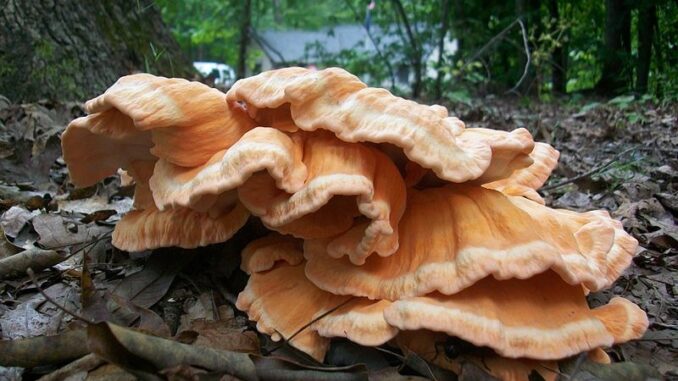
What do you think of when someone mentions fungus? Mushrooms on steaks or salads? Something less appealing like athlete’s foot, jock itch, or ringworm? These are all fungi, but only the few that most modern furless primates are typically familiar with. Mycologists (scientists who specialize in fungi) estimate there are between one million and six million species of fungi (or fungeses, if you prefer). That’s quite a huge range, but understandable when one realizes that there’s much work to be done; many more species are expected to be discovered, and most known species need much more study.
Fungi are everywhere, and that’s good for life on Earth. Life as we know it would not, could not exist without them, and mycologists are worried that humans are endangering funguses. So what is a fungus, anyway? They’re not plants, although biologists thought they were for quite some time. Eventually scientists learned enough about them to recognize fungi have some characteristics in common with animals, and some commonalities with plants, having branched into their own distinct kingdom approximately one billion years ago. Fungi also have unique features not shared with plants, or animals, or any other kingdom. One unique feature is the mycelium.
Mushrooms pop up out of the ground, but if you pull them up, you’ll find no roots attached. That’s because the ‘fruit body’ (the reproductive part of a fungus that grows above ground) is only a small part of an individual fungus. Most of the organism lives underground and consists of the mycelium, a network of microscopic threads which may cover a large area, and intertwine and intermingle with the roots of myriad plants and trees. Every healthy scoop of soil contains mycelium, likely belonging to multiple fungeses. Each individual fungus may grow multiple fruit bodies above ground, while the size of the individual organism underground is difficult to assess. The largest known organism on the planet (by area covered) is a fungus discovered in the Blue Mountains of Oregon in 1998, spread out over 2,000 acres.
Most plants (excluding marine plants) have a symbiotic relationship with fungi. The fine filaments of the mycelium connect with plant roots, providing the plant with additional water, nutrients, and minerals collected by the fungi. Fungi benefit by receiving sugars the plant made by photosynthesis, since fungi are not capable of photosynthesis. Trees are especially dependent on fungeses. Without fungi, there are no trees. Another role fungus plays in the environment is chief decomposer of dead wood and plant material. Fungus takes the carbon that the plant was made of and locks it into the ground.
There are several reasons fungi are under threat. As with plants and wildlife, fungeses are losing habitat to urban and suburban development. Pollution from chemicals is another threat. Also, overharvesting wild fungi for use in food and medicines is a major concern. Probably the biggest problem is the inclusion of fungicides in fertilizer applied to fields, gardens, and lawns. The weather, specifically heat, humidity, and moisture has an affect on fungal reproduction. Mycologists are studying what, if any, effect fungi have on the climate. If there’s a connection, a die-off of fungi could result in undesirable changes to the climate.
On a positive note, funguses show promise in new technologies. There are advancements being made in industry using fungi as a key ingredient. Insulation, paper production, clean water, medicines, and environmental cleanup are among the most exciting ideas.
Have you ever wondered why you see so many articles on science topics on TNB? It’s not just because I find it interesting, or because I hope to get other people interested in science: it’s primarily because it’s vitally important that non-scientists everywhere understand the conversations going on in scientific circles. Human activity is destroying the environment and the organisms that make an ecosystem work to support life on Earth. Fungi are some of the crucial creatures keeping our life-support system going. We can’t survive without them.
Question Of The Night: What everday item, product, or service could you give up and never miss?
